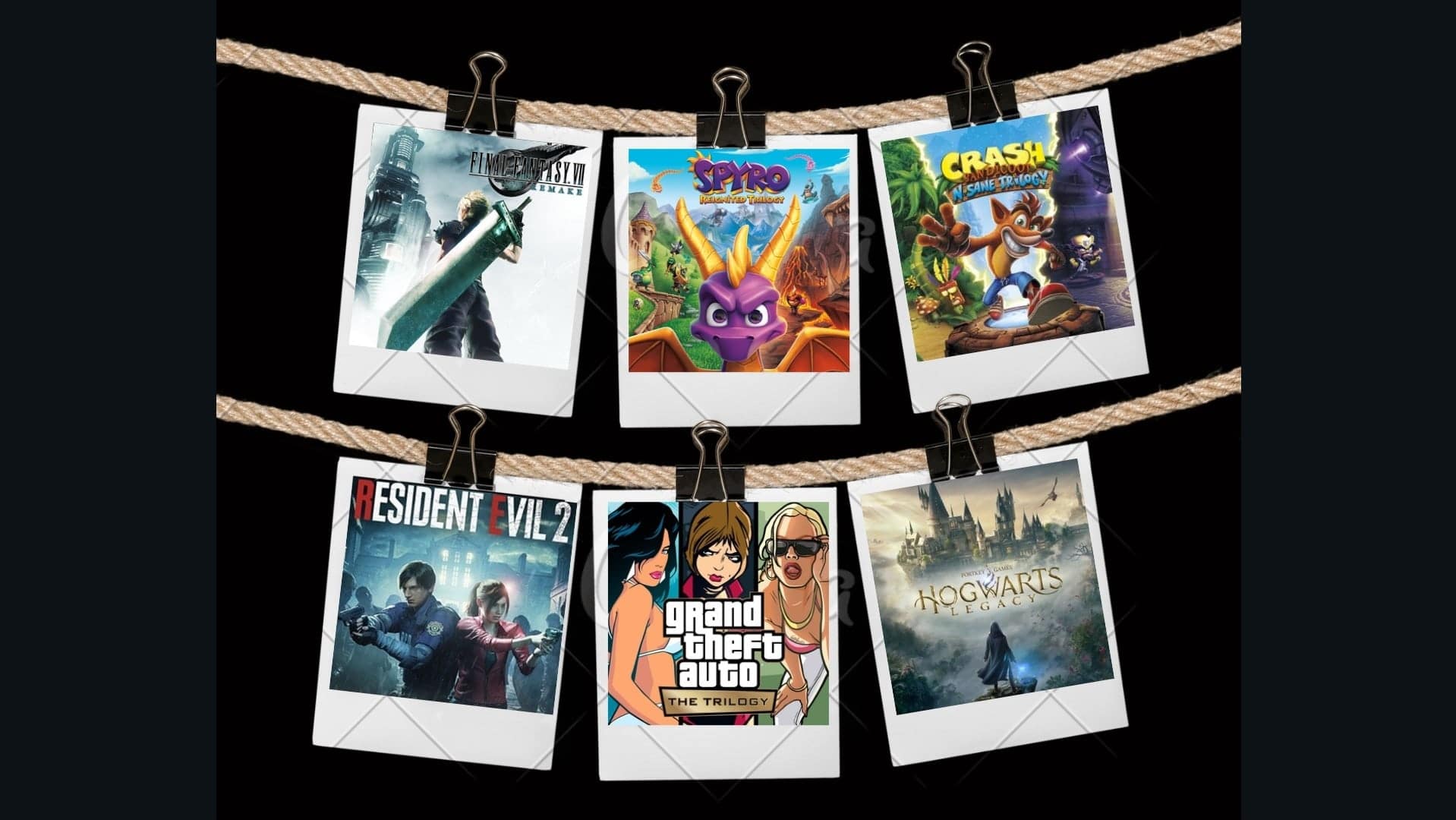Remakes and Reboots: Unlocking the Past for Future Gaming Success
Published on

In recent years, the gaming industry has witnessed a surge in remakes and reboots of classic games. These revitalized versions of beloved titles from the past have been met with overwhelming success and fan appreciation. This article delves into the reasons behind their popularity, why developers embark on these projects, highlights recent releases, discusses the challenges and benefits, and explores the promising future that awaits the world of game remakes and reboots.
The Success of Game Remakes and Reboots
The success of game remakes and reboots can be attributed to several factors:- Nostalgia and Emotional Connection: Classic games hold a special place in the hearts of gamers, invoking a sense of nostalgia and emotional attachment. Remakes and reboots tap into this nostalgia, allowing players to relive cherished memories and experiences. The familiarity and emotional connection to the original game create a strong appeal and generate excitement among both old and new players.
- Modern Visual Upgrades: Remakes and reboots take advantage of modern technology to enhance the visual and audio aspects of the game. Updated graphics, improved character models, and remastered soundtracks breathe new life into familiar worlds, making them visually stunning and immersive. The visual upgrades create a fresh experience while preserving the essence of the original game.
- Enhanced Gameplay Mechanics : Remakes and reboots often introduce improvements to gameplay mechanics and controls. Developers address any limitations or frustrations of the original game, making the gameplay smoother and more enjoyable. Quality-of-life enhancements, such as streamlined interfaces, improved camera systems, and refined combat mechanics, cater to modern gaming standards and enhance the overall experience.
- Evolution of Technology and Platforms : The advancement of technology and gaming platforms allows developers to create remakes and reboots with higher fidelity and improved gameplay mechanics. The power of modern consoles and PCs enables more faithful and ambitious recreations of beloved classics, providing an enhanced experience that was not possible during the original release.
Why Developers Pursue Remakes and Reboots:
- Expanding Audience Reach :Remakes and reboots have the potential to attract a wider audience. While appealing to longtime fans, they also serve as an entry point for new players who may have missed out on the original release. The familiarity of a well-known brand or franchise combined with modern updates can draw in a broader player base, expanding the reach and commercial success of the game.
- Capitalizing on Established IP : Classic games often have strong brand recognition and a dedicated fan base. Developers leverage this existing fan base and the associated brand loyalty to generate interest and anticipation for remakes and reboots. This built-in fan base provides a solid foundation of support and generates buzz around the release, boosting sales and ensuring a receptive audience.
Recent Releases and Notable Examples
Recent years have seen several highly successful remakes and reboots, with a few notable examples:- Final Fantasy VII Remake" (2020): This highly anticipated remake of the iconic 1997 RPG garnered critical acclaim for its modernized visuals, expanded storytelling, and reimagined combat mechanics, introducing the beloved world of Final Fantasy VII to a new generation of players.
- Resident Evil 2" (2019): A reimagining of the 1998 survival horror classic, this remake captured the essence of the original while delivering updated visuals, revamped gameplay mechanics, and a heightened sense of terror, appealing to both longtime fans and newcomers.
- Crash Bandicoot N. Sane Trilogy (2017): A collection of remastered versions of the first three Crash Bandicoot games, Crash Bandicoot N. Sane Trilogy was a critical and commercial success.
- Spyro Reignited Trilogy (2018):A collection of remastered versions of the first three Spyro the Dragon games, Spyro Reignited Trilogy was another critical and commercial success.
- Grand Theft Auto: The Trilogy – The Definitive Edition (2021): A remaster of the 2001, 2002, and 2004 action-adventure games, Grand Theft Auto: The Trilogy – The Definitive Edition was criticized for its poor quality, including outdated graphics, bugs, and glitches.
- Hogwarts Legacy (2023): An action role-playing game set in the Harry Potter universe, Hogwarts Legacy is scheduled to be released in 2023.
Challenges and Benefits
- Balancing Nostalgia and Innovation: Striking a delicate balance between honoring the original game's essence and introducing fresh elements can be a challenge. Developers must navigate the fine line between nostalgia-driven expectations and the desire to innovate and surprise players.
- Modernizing Outdated Mechanics: Adapting classic game mechanics to fit contemporary gaming standards can be a daunting task. Developers must carefully update controls, user interfaces, and gameplay systems while preserving the core identity and charm that made the original game beloved.
The Future Ahead
The future of remakes and reboots appears bright. As technology advances, developers have the potential to breathe new life into beloved franchises, providing immersive experiences that transcend generations. With the growing demand for nostalgia-driven content, we can expect more classic games to be remade or rebooted, delivering fresh perspectives on beloved titles and introducing them to an even wider audience.Remakes and reboots of classic games have found tremendous success by tapping into nostalgia, modernizing gameplay and visuals, and expanding the reach of iconic franchises. With careful balancing of nostalgia and innovation, the gaming industry has the opportunity to captivate both new and old players alike, preserving the legacy of beloved games.